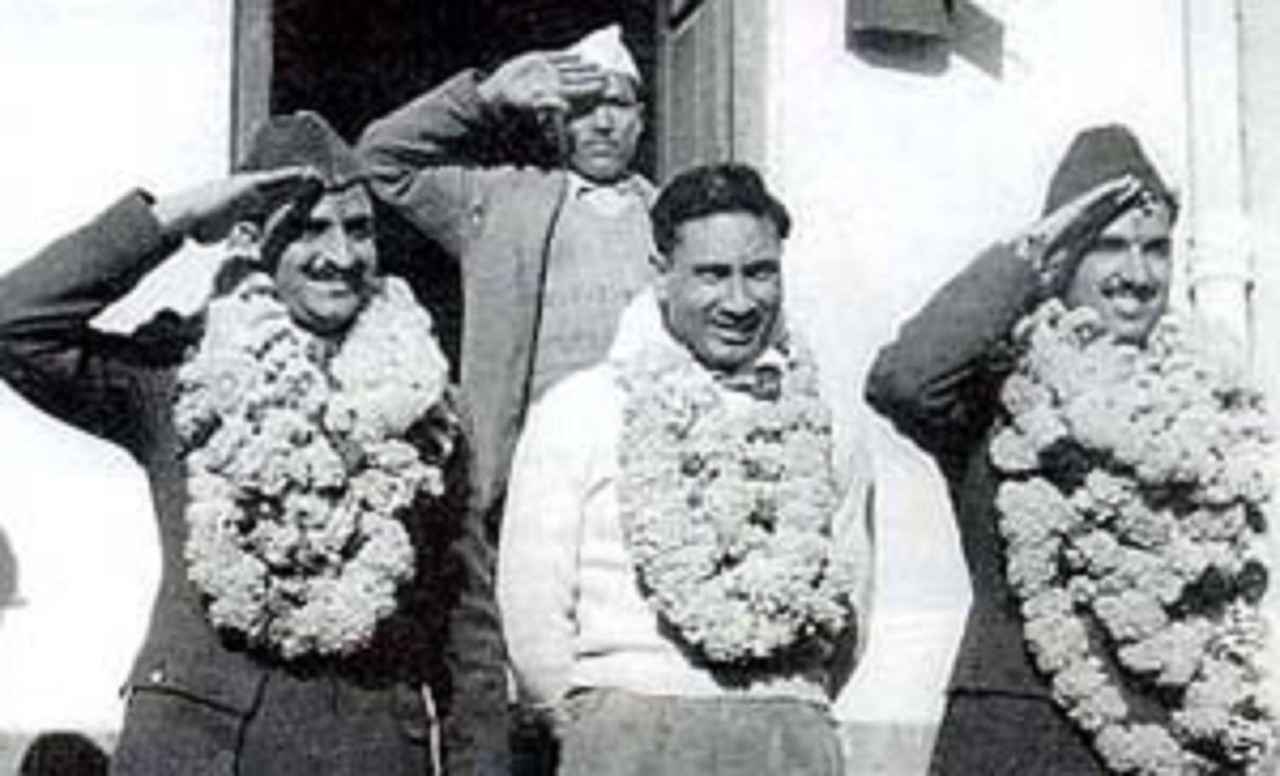
Netaji Subhas Chandra Bose revived and overhauled a rebel army called the ‘Azad Hind Fauj’ in 1943. The soldiers were Indian Prisoners of War (PoW) of the British Indian Army captured by Axis power Japan in Singapore.
Besides, thousands of Indian Malaysian expats joined in. This army fought alongside the Japanese against British in the campaigns of Imphal and Kohima, and later against the Allied retaking of Burma. An estimated 60,000 INA soldiers fought and 26,000 died, damaging the British even in their own death and defeat.
Major General Shah Nawaz Khan, Colonel Gurbaksh Singh Dhillon and Colonel Prem Kumar Sahgal were three of the senior-most officers of INA and trusted colleagues of Netaji. They underwent court-martial by the British at Red Fort in 1945 and were sentenced to death, but instead had to be released following widespread protests and unrest in India. Let us read how they remembered Netaji in their various memoirs and biographies:
Maj. Gen. Shahnawaz
(Taken from the book: The I. N. A. Heroes: Autobiographies of Maj. Gen. Shahnawaz, Col. Prem K. Sahgal [and] Col. Gurbax Singh Dhillon of the Azad Hind Fauj, published in 1946)
“I had never met Netaji, I had never seen him before. I knew he was a bold, independent man. But still grave doubts were lingering in my mind as to what his attitude would be towards the Japanese. So when I first met Bose, I started observing him closely as a detective. I used to watch his movements, his gestures, with the same care and assiduity as a doctor in the laboratory looks through his microscope at the tiny plate on which rests a drop of blood. I watched him for days and days. To my surprise and satisfaction, I found that there was no trace of servility and not a shadow of inferiority complex in a single gesture of his. He would never bow to a Japanese no matter how high a dignitary he might be. He was always calm and resolute. There was determination in the straight lines of his lips. There was sincerity sparkling in his eyes, and finally there was faith written in invisible letters in the furrows of his forehead. And what was that faith? It was his faith that India would be free…that from the Indians in the Far East, he could raise an army which would shed their last drop of blood to free India. When I saw all these things, which I had been longing to see, instantaneously, I decided to offer myself to Netaji -- my body and my soul.”
Colonel Gurbaksh Singh Dhillon:
(Taken from Colonel Dhillon’s memoirs: From My Bones, published in 2002)
“Netaji cared not only for the honour, welfare and comfort of his soldiers but also respected their feelings. He had a compassionate nature. He overwhelmed us with his concern for us individually and collectively, like sending a pair of boots to a sepoy with instructions to the Regimental Commander to see personally that it fitted the man and report back to Netaji, offering a cigarette case to a veteran commander from Imphal, helping his own staff members wash hands by pouring water and offering his own towel to scrub hands, shedding tears with a lump in the throat on hearing about our difficulties and taking immediate steps to provide relief. Such spontaneous feelings coming out of his heart, made him extraordinarily a rare leader of men in war. His men felt happy, proud and lucky to do and die under his command. It was this relationship which kept up our morale in spite of all our difficulties and deficiencies.”
Colonel Prem Kumar Sahgal
(Here’s an excerpt of Colonel Sahgal’s description of Bose in his biography titled ‘The Forgotten Army’ by Peter Ward Fay)
“Subhas, he (Prem) noted, was quick to pick up what he needed for intelligent talk about arms, equipment, training, supply. He was meticulous. Prem remembers driving with him one day to a place where he was to give a speech in Hindustani, being pumped as they drove for the correct Urdu expression for this and that, and discovering, when the speech was delivered, that Bose had used them all.”
